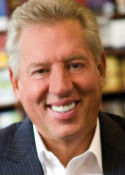When a group of soldiers found themselves locked away in a German prison camp during World War II, they easily could have waited out the end of the war there. Or, they might have made a few small attempts to free one or two people.
At one such camp, however, the goals were much bigger. These prisoners organized themselves around the collective goal of freeing 250 soldiers in one night. Their story became the basis for the 1963 movie, “The Great Escape.”
Imagine the teamwork required to pull off such an ambitious goal. Groups of prisoners had to engineer and dig tunnels, build supports from wooden slats, dispose of dirt, create bellows to pump air into the tunnels, and light the tunnels.
According to one list, the supplies included 4,000 bed slats, 1,370 battens, 1,699 blankets, 52 long tables, 1,219 knives, 30 shovels, 600 feet of rope and 1,000 feet of electric wire.
In addition to finding materials for the tunnels, each escapee would need civilian clothes, German papers, identity cards, maps, homemade compasses and emergency rations.
Everyone had a job, from tailors to pickpockets to forgers. There were even teams that specialized in distracting the German soldiers.
“It demanded the concentrated devotion and vigilance of more than 600 men – every single one of them, every minute, every hour, every day and every night for more than one year,” John Sturges, who directed the movie account, once said. “Never has the human capacity been stretched to such incredible lengths or shown such determination and such courage.”
To pull off such an elaborate mission, the soldiers moved beyond cooperation and into collaboration. You see, there’s a difference between cooperation and collaboration.
Cooperation is working together agreeably. Everybody sits down, and they’re agreeable. Collaboration is working together aggressively; and there’s a world of difference between those two.
There are four changes needed to become a collaborative type of a player:
1. Perception
You need to see teammates differently; you need to see them as collaborators, not as competitors.
2. Attitude
As a team player, you need to be supportive, not suspicious, of teammates, because if you trust others, you’ll treat them differently – you’ll treat them better.
3. Focus
A collaborative type of team player concentrates on the team, not himself or herself. Cavett Roberts said it right: “True progress in any field is a relay race and not a single event,” so the focus is different.
4. Results
You begin to create victories through multiplication.
One is too small of a number to produce greatness. In fact, nothing can be accomplished in a great way without help. You have to learn to collaborate. You have to learn to come together.
When you’re developing a team that collaborates, it begins to be aggressive, not just agreeable. And it begins to accomplish a vision that mere cooperation never would allow.
monthly e-newsletter: Leadership Wired available at www.INJOY.com.
John Maxwell grew up in the 1950s in the small Midwestern city of Circleville, Ohio. John's earliest childhood memory is of knowing that he would someday be a pastor. He professed faith in Christ at the age of three, and reaffirmed that commitment when he was 13. At age 17, John began preparing for the ministry. He attended Circleville Bible College, earning his bachelor's degree in 1969. In June of that same year, he married his sweetheart, Margaret, and moved to tiny Hillham, Indiana, where he began his first pastorate.
While serving in his second church, Maxwell began to study the correlation between leadership effectiveness and ministry effectiveness. On July 4, 1976, while preaching at a service commemorating America's bicentennial, John sensed that God was calling him into a ministry to pastors. Within days after that event, pastors began to contact him, asking for his assistance in nurturing their churches. Over the next four years, on an informal basis, John helped scores of fellow pastors. Then, in 1980, he was asked to become Executive Director of Evangelism for the Wesleyan denomination.
Though his time at Wesleyan headquarters was productive, John soon realized that his deeper desire was to help pastors from numerous denominations. He knew that desire would be unfulfilled if he were to stay at denominational headquarters. As a result, in 1981 John accepted the call to return to the pastorate, this time at Skyline Wesleyan Church in the San Diego, California area. But he did so with the church's blessing to pursue his vision. The Skyline congregation allowed him to continue mentoring and assisting pastors even as he led them to new levels.
In 1985, as he continued to equip and encourage other pastors, John took the next crucial step in leadership development. He founded a new company called INJOY and created the INJOY Life Club, featuring a monthly tape for leaders. The fledging operation, established in the corner of a garage, was soon bursting at the seams. The INJOY Life Club tapes were received with great enthusiasm, and the number of subscriptions quickly increased from hundreds to thousands. Simultaneously, the demand for other resources and seminars exploded. Pastors from coast to coast were responding, and their desire for help was even greater than John had anticipated.
As the years passed, INJOY began demanding more and more of John's time. In 1995, he resigned from his position as senior pastor at Skyline following a very fruitful 14-year tenure. The church had tripled in size and its lay ministry involvement had increased ten-fold. Dr. Maxwell is in great demand today as a speaker. Through his bestselling books, audio and video resources, and major conferences, he communicates directly with more than one million people every year. He is frequently asked to speak for organizations such as Promise Keepers and Focus on the Family, but his greatest joy and desire is to help pastors become better leaders.
Because the need for leadership development knows no borders, John established EQUIP, a non-profit organization which trains leaders in urban communities, academic institutions, and within international organizations. EQUIP is also spearheading a movement which has enlisted more than one million pastoral prayer partners who covenant to pray specifically for those who shepherd God's flock.
John continues to seek new opportunities to help churches and church leaders. He knows that one thing is constant: the only hope for the world is salvation through the Lord Jesus Christ, who gives life abundantly.







